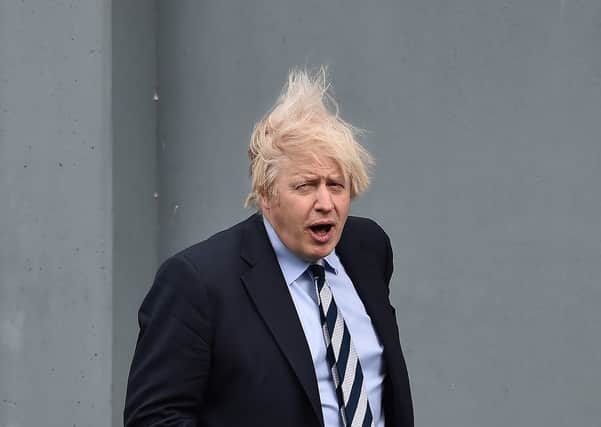Boris Johnson has refused to apologise for past sexist comments - despite his pledge to ‘address the issue of casual sexism’


Downing Street has refused to say that Prime Minister Boris Johnson regrets using “sexist language” during his career as a journalist, after he demanded an end to “everyday sexism”.
A Prime Minister’s Questions, Johnson said: “We have to address the fundamental issue of the casual everyday sexism and apathy that fails to address the concerns of women - that is the underlying issue.”
Advertisement
Hide AdAdvertisement
Hide AdJohnson’s Press Secretary Allegra Stratton said that he was being “candid and frank with the country about the measures and the steps we are all going to have to take to make sure that women and girls feel safer and more comfortable on the streets of their own country”.
Sexist language
However, Stratton and Johnson’s official spokesperson both refused to say whether the Prime Minister regretted his sexist language, and instead insisted that Johnson has a “strong track record” on support for women and girls.
In 1995, Johnson wrote in a Spectator article that the children of single mothers were “ill raised, ignorant, aggressive and illegitimate”, and called for action to “restore women’s desire to be married”.
In other Spectator article, Johnson also criticised “the modern Briton [for] his reluctance or inability to take control of his woman”.
Advertisement
Hide AdAdvertisement
Hide AdIn 1996, whilst he was a journalist for the Telegraph, Johnson wrote a piece reviewing the quality of the “hot totty” present at a Labour conference.
In another Telegraph article in 1997, Johnson wrote that “emotional” women after often “bubbling blondes” or “collapsing with emotion”.
In a piece marking his exit as editor of the Spectator, Johnson wrote about Kimberly Quinn, who was then the Spectator’s publisher. He advised his successor that when Quinn comes around with suggestions for boosting circulation to “just pat her on the bottom and send her on her way”.
In 2012 when he was serving as Mayor of London, Johnson wrote about the London Olympics - but not about the medals that the UK won. Instead, he decided to focus on female athletes in the field of volleyball.
Advertisement
Hide AdAdvertisement
Hide AdHe wrote: “They are glistening like wet otters and the water is splashing off the brims of the spectators sou’westers.”
In 2013, he interrupted the then Malaysian Prime Minister Najib Razak to suggest that Malaysian women go to university because “they’ve got to find men to marry”.
In 2018, Speaker John Bercow branded Johnson’s remarks about Emily Thornberry as “sexist”. Johnson referred to Thornberry as “Baroness Nugee”, which was a reference to her husband’s title.
Bercow told Johnson: “We do not address people by the titles of their spouses. The Shadow Foreign Secretary has a name. And it is not ‘Lady something’. We know what her name is. And it is inappropriate, and frankly, sexist to speak in those terms.”
Advertisement
Hide AdAdvertisement
Hide AdIn 2019, court documents also revealed that he described former Prime Minister David Cameron as a “girly swot”.
Refusal to apologise
In the briefing following the Prime Minister’s question, Stratton was asked repeatedly if he regretted his past language.
However, Stratton refused to address the topic and instead said: “Women across the country now want real action and will be pleased to hear their Prime Minister evidently understanding that what too many of them experience on our streets at night - and sometimes in the day as well - is something being taken seriously at the top of government.”
Stratton said that Johnson would describe himself as a “feminist” and added: “If you look back to 2009 when he was London Mayor, he launched a call to action to end violence against women.
Advertisement
Hide AdAdvertisement
Hide Ad“That was the first ever strategy of its sort for a major city.
“It saw him quadrupling funding for rape crisis provision and opening three new centres in London and a host of other measures.
“I just raise it because people should look back to his record - not just in government at the moment where you have this Domestic Abuse Bill going through the Lords at the moment but you also have the [Police, Crime, Sentencing and Courts] Bill that will increase sentences for rapists and paedophiles and the like and you also have the current violence against women and girls strategy.”